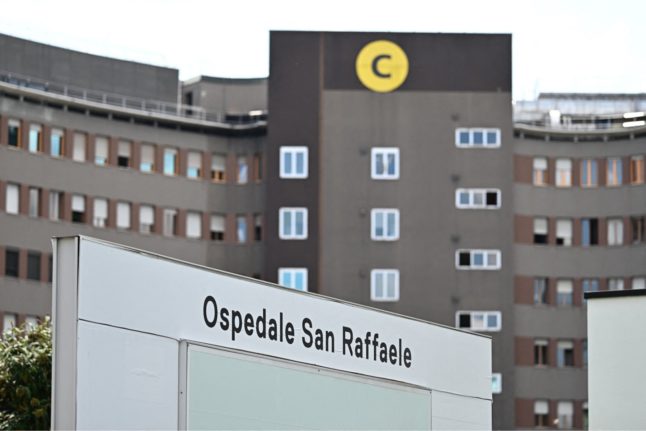Preliminary results from thousands of blood tests conducted across Italy in the past two months suggest that the number of people exposed to the coronavirus was far higher than the number of infections officially confirmed – 248,229 to date.
According to the Ministry of Health, 1.482 million people – the equivalent of 2.5 percent of the entire population of Italy – are believed to have coronavirus antibodies in their blood, which indicates that they have been exposed to the virus and had an immune response, but not whether they're safe from catching it again.
The findings are based on nearly 65,000 blood tests on a cross-section of Italian residents, carried out between late May and mid July by the Italian Red Cross on behalf of the Health Ministry and national statistics office Istat.

Photo: Tiziana Fabi/AFP
More than a quarter of people found to have antibodies, 27.3 percent, never developed any symptoms of Covid-19, which the health ministry said emphasised the importance of following social distancing and hygiene rules to avoid spreading the virus unwittingly.
“The rate of 2.5 percent might seem low but it can become problematic if we're not cautious,” said Gian Carlo Blangiardo, president of Istat, as the researchers presented their first results on Monday.
“It means that the probability of encountering someone positive for the virus is 2.5; if I encounter 20 people, there's a 50 percent chance I'll come into contact with someone positive.”
READ ALSO:
- 'Freedom isn't the right to make others ill', Italy's president warns
- In charts: How coronavirus mortality rates compared around Europe
- Travel from Italy linked to one in four early Covid-19 cases outside China, study finds
The rate was significantly higher in parts of northern Italy, where most of Italy's coronavirus cases have been recorded.
In Lombardy, the northern region with the biggest number of infections by far, 7.5 percent of people tested had coronavirus antibodies – three times the national average. In the worst affected province of Bergamo, the rate was as high as 24 percent.
The highest regional rates were all in the north of Italy, while they were below the national average almost everywhere in the centre and especially the south. At the lowest end of the scale, the rate among residents of Sicily and Sardinia was just 0.3 percent.
Predictably, antibodies were more prevalent in health workers, 5.6 percent of whom showed signs of exposure. There was also an elevated rate among people working in restaurants, 4.1 percent.

Photo: Marco Bertorello/AFP
The results showed that government containment measures and public caution had helped control the spread of coronavirus in Italy, said Health Minister Roberto Speranza. But “even if we're out of the storm, we're not yet at a safe port,” he added, urging Italians not to let down their guard.
Having antibodies in your blood does not necessarily mean that you're immune to coronavirus. It's not yet known whether people with antibodies can catch the virus again, or how soon.
The researchers carried out 64,660 blood tests between May 25th and July 15th. Participants came from a sample of 150,000 people across 2,000 municipalities and a range of ages and professions who were originally invited to take part. All of those selected lived with other members of their family, i.e. not alone, with housemates or in nursing homes.



 Please whitelist us to continue reading.
Please whitelist us to continue reading.
Member comments